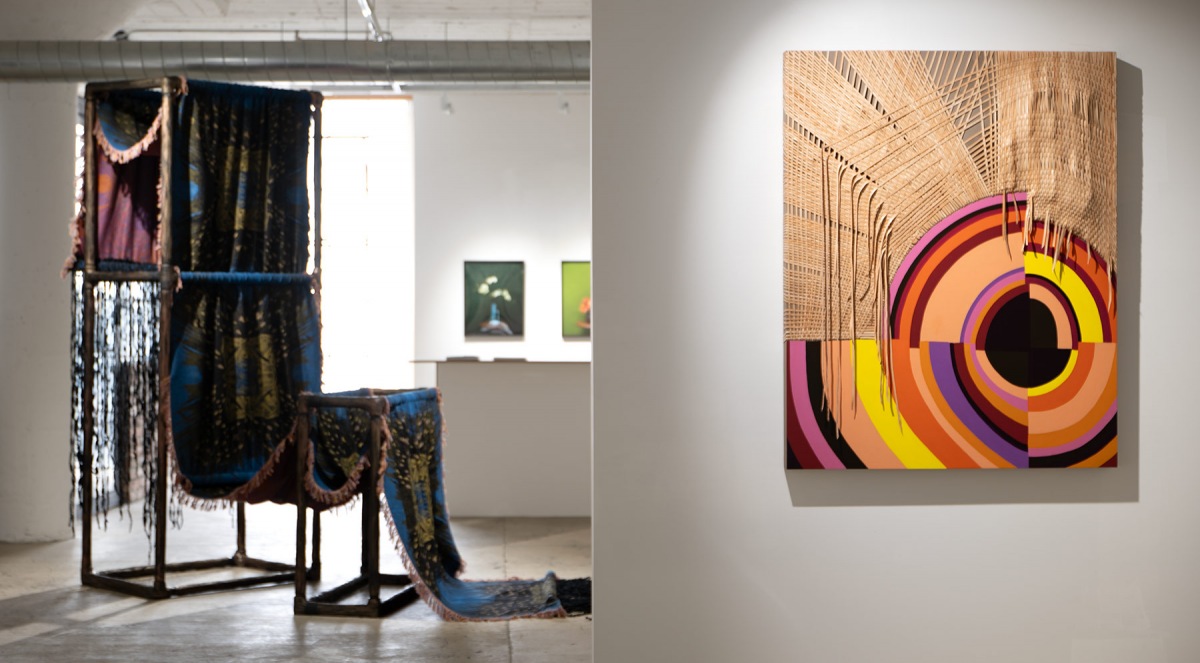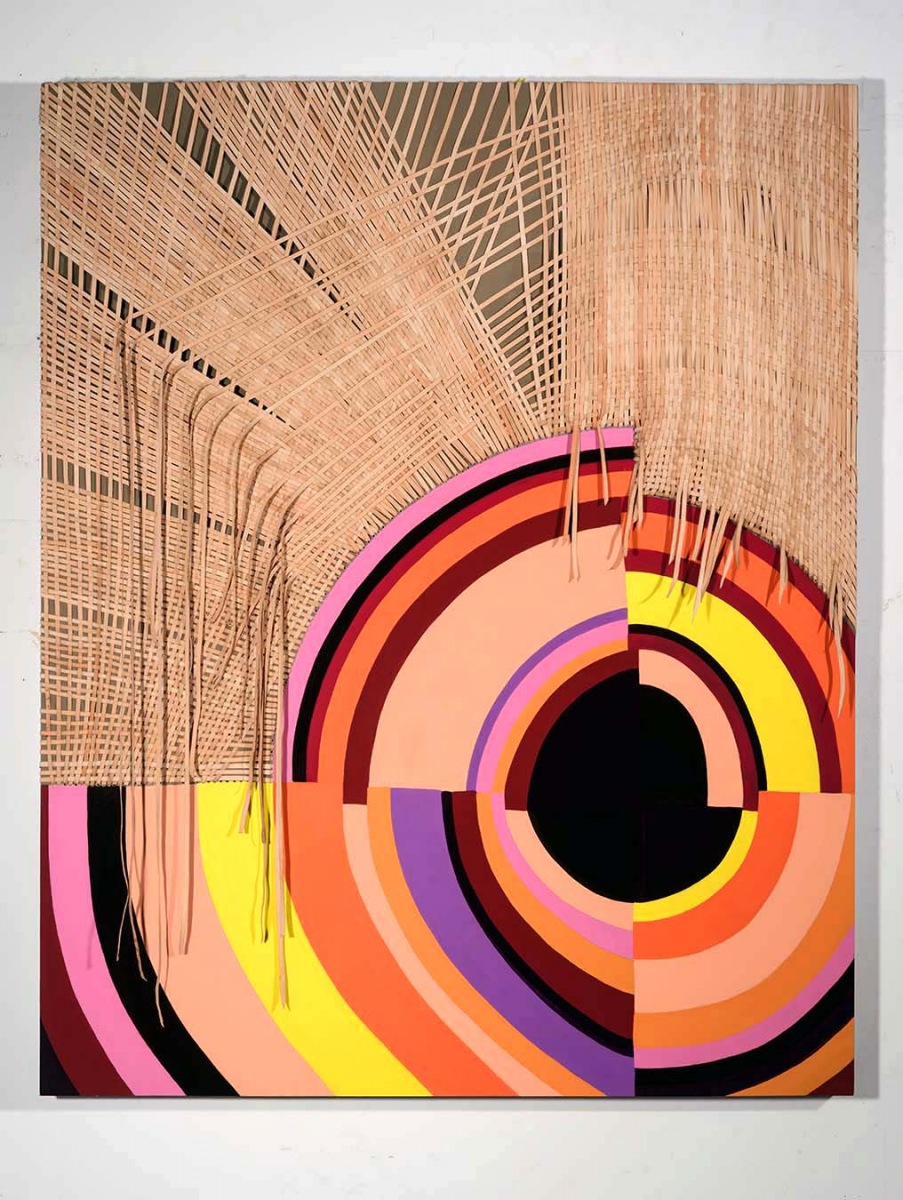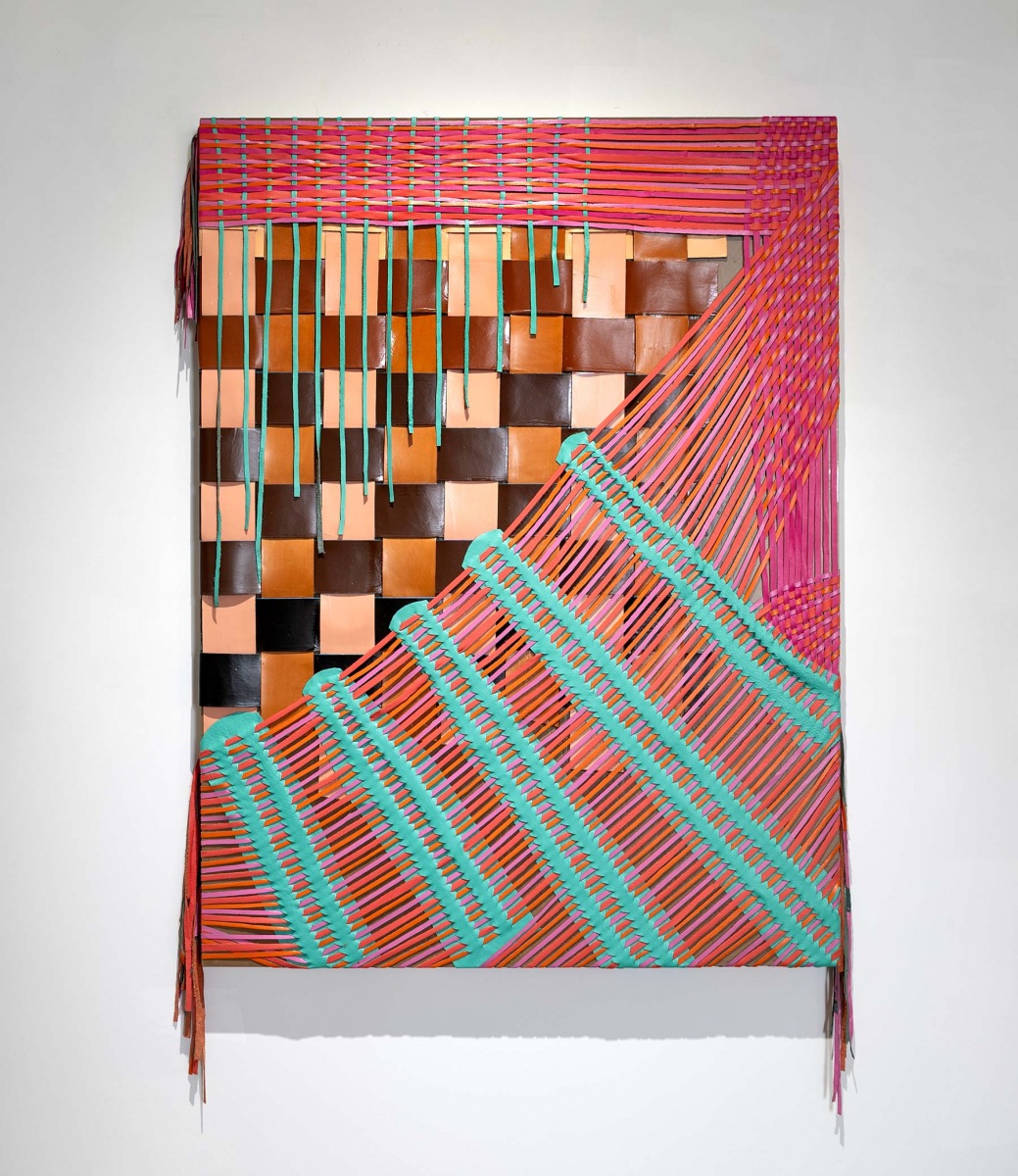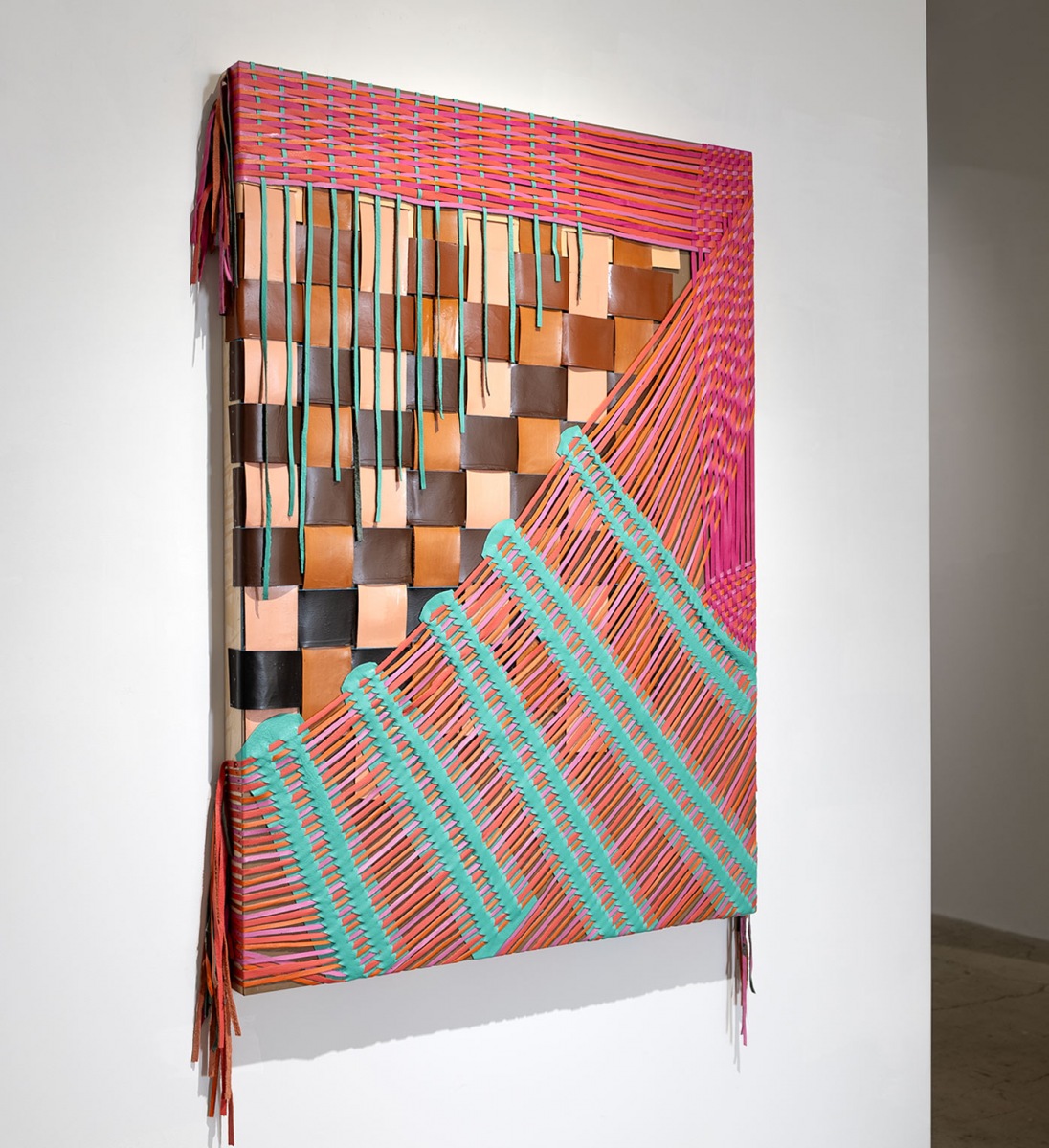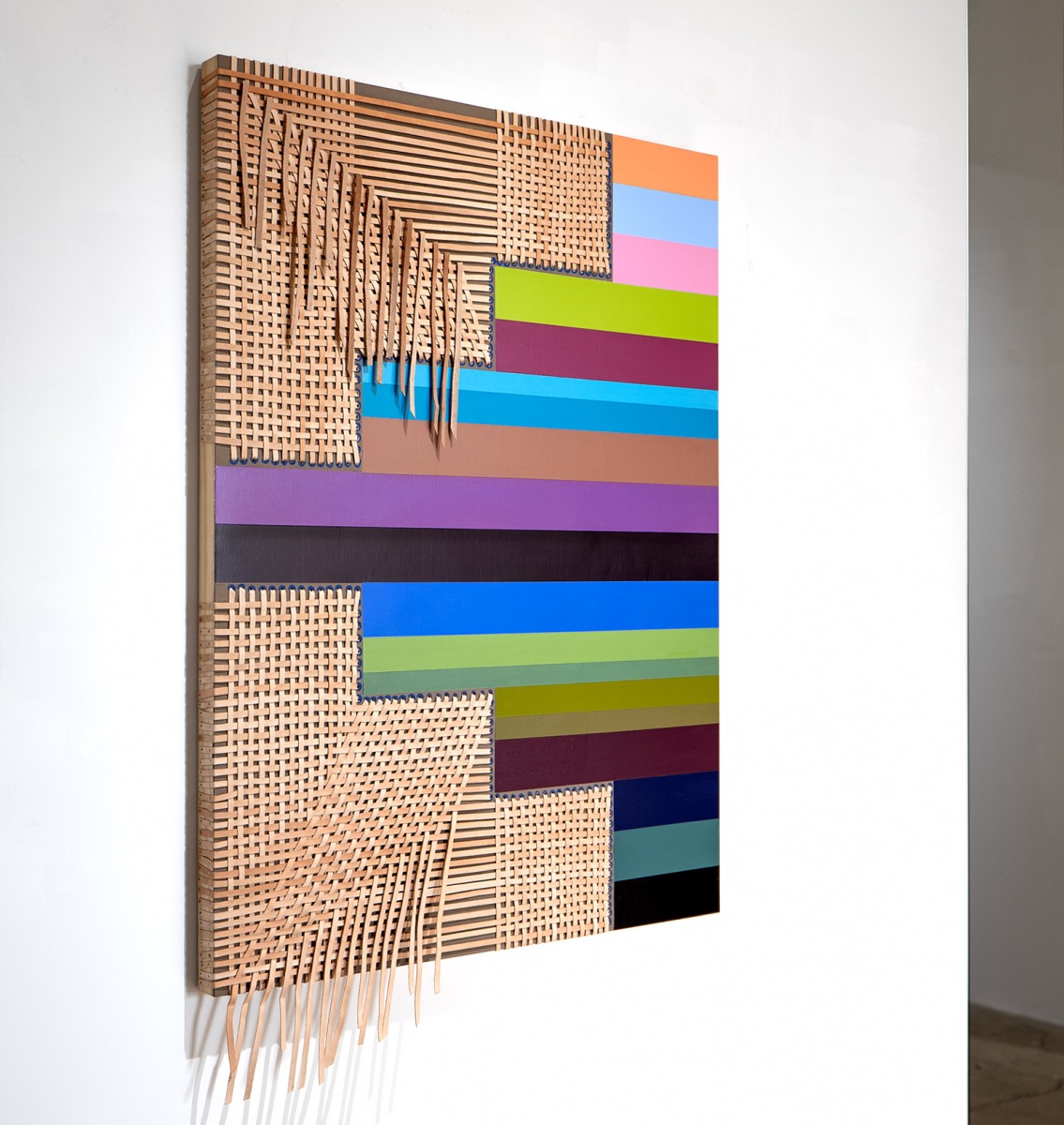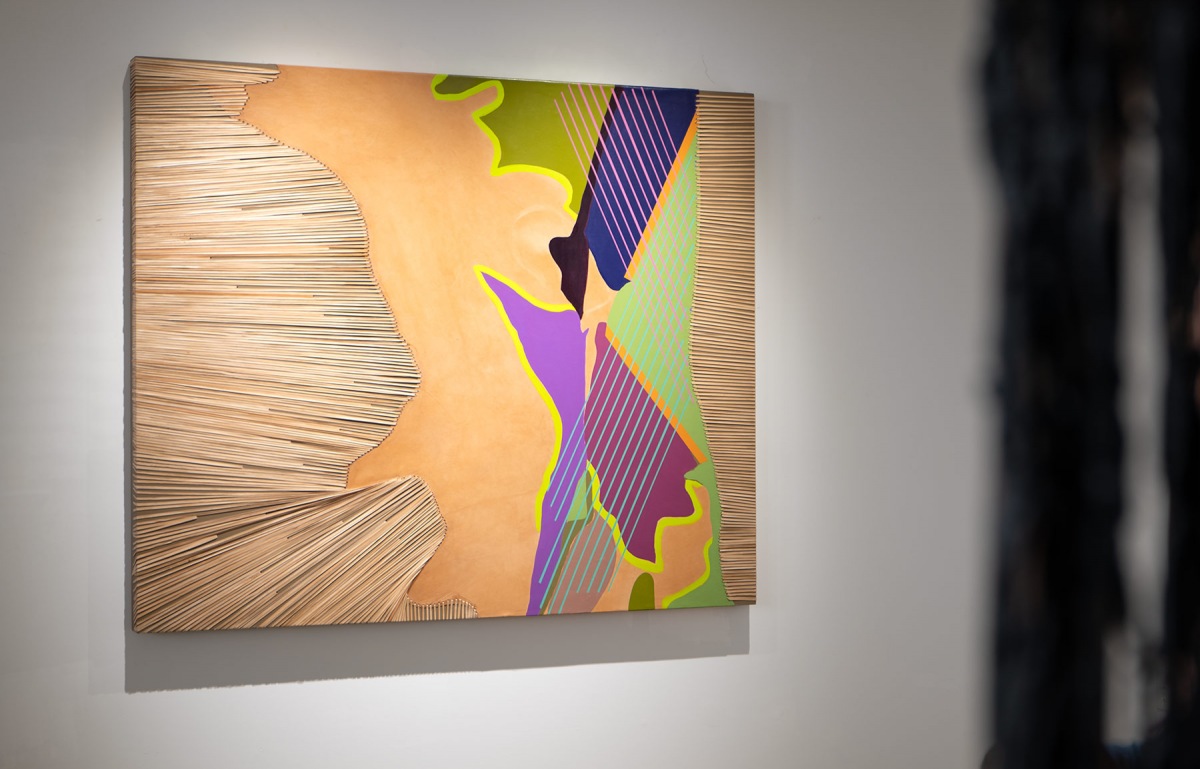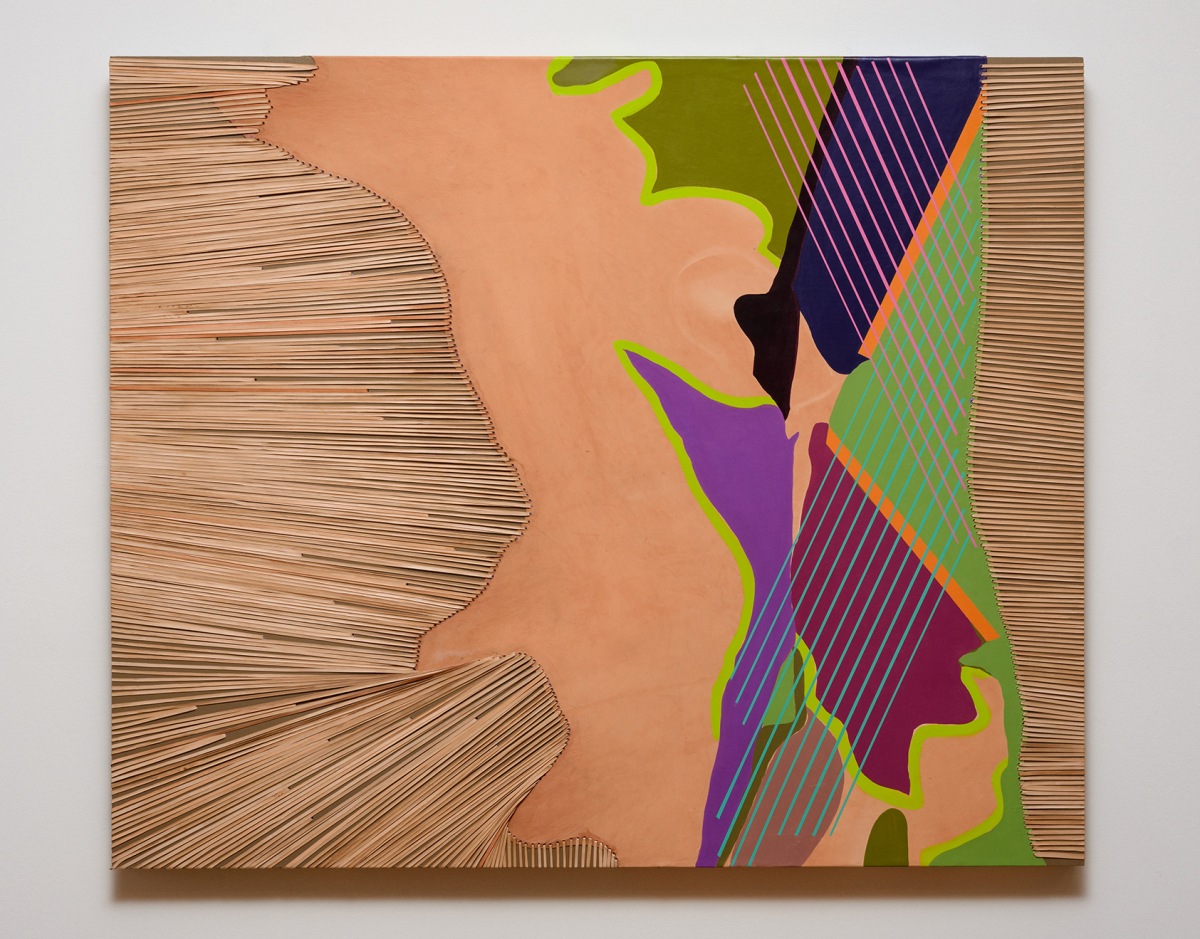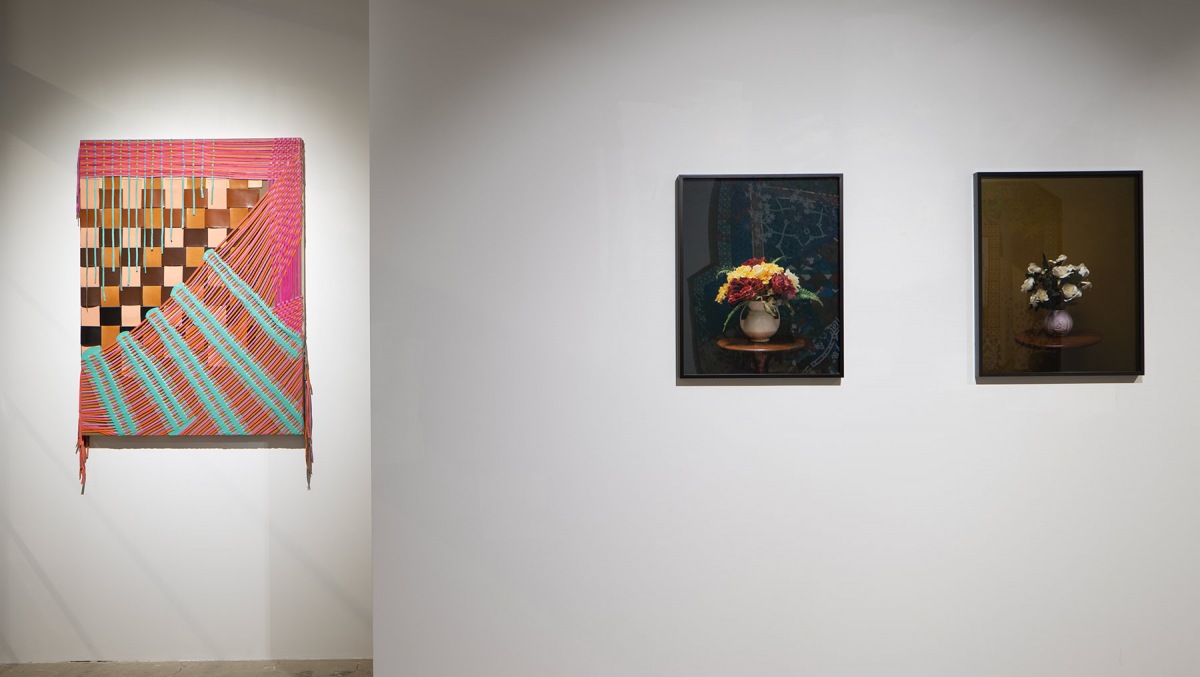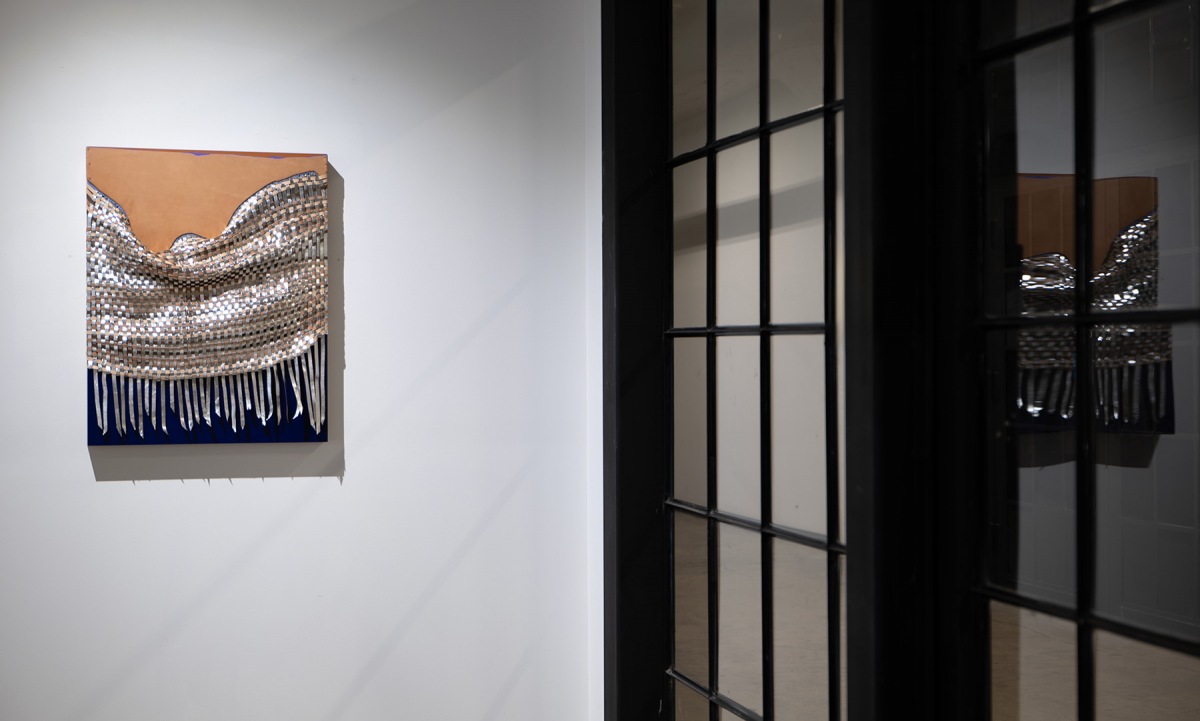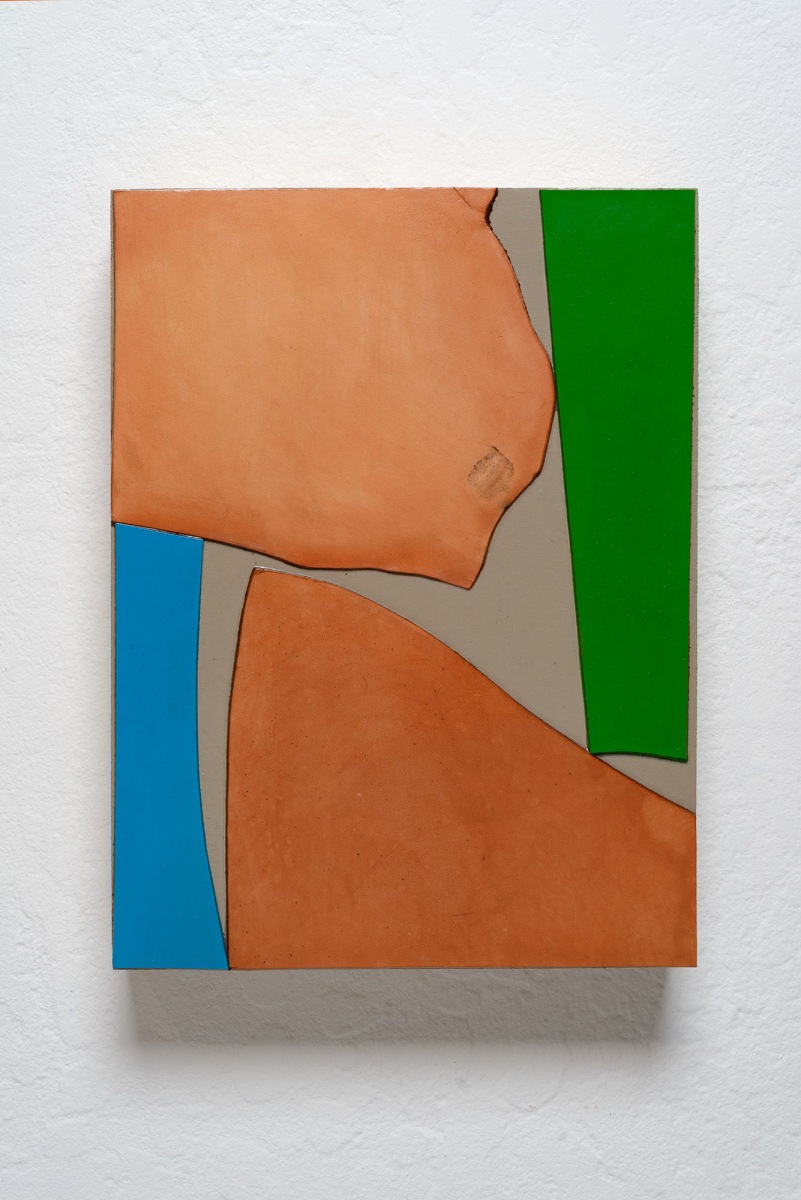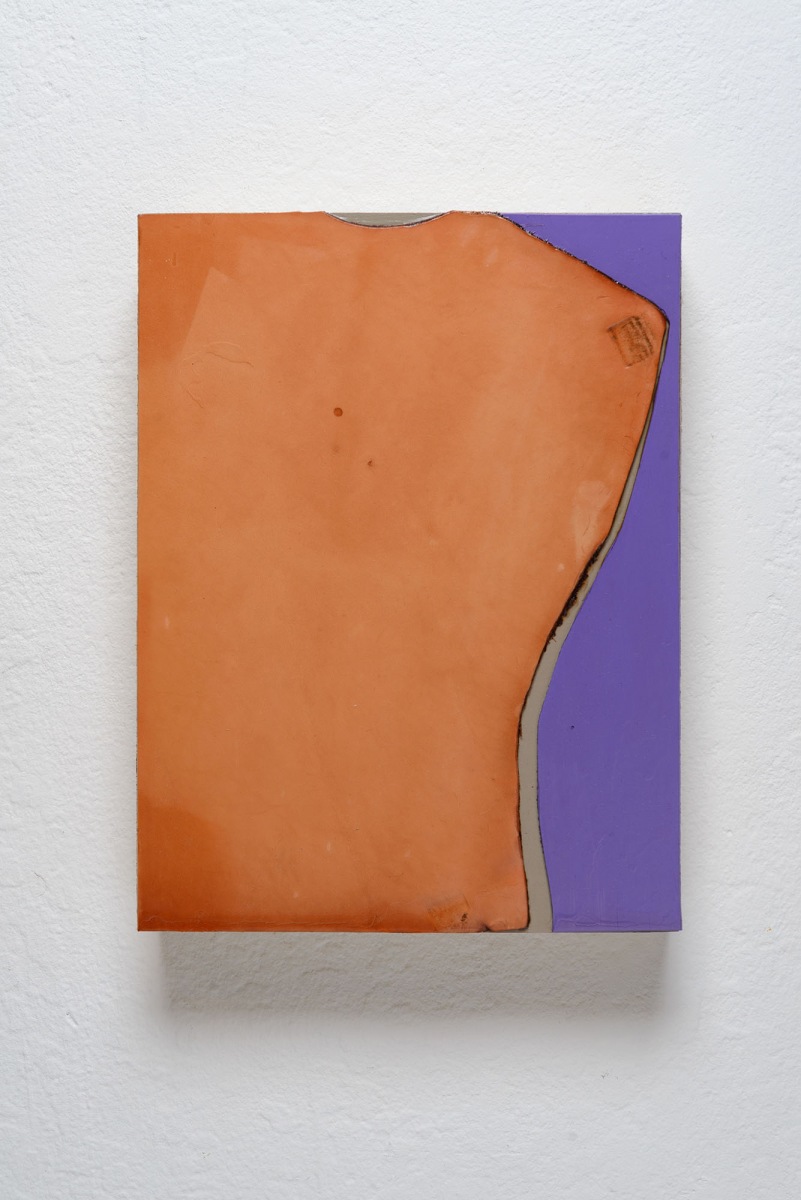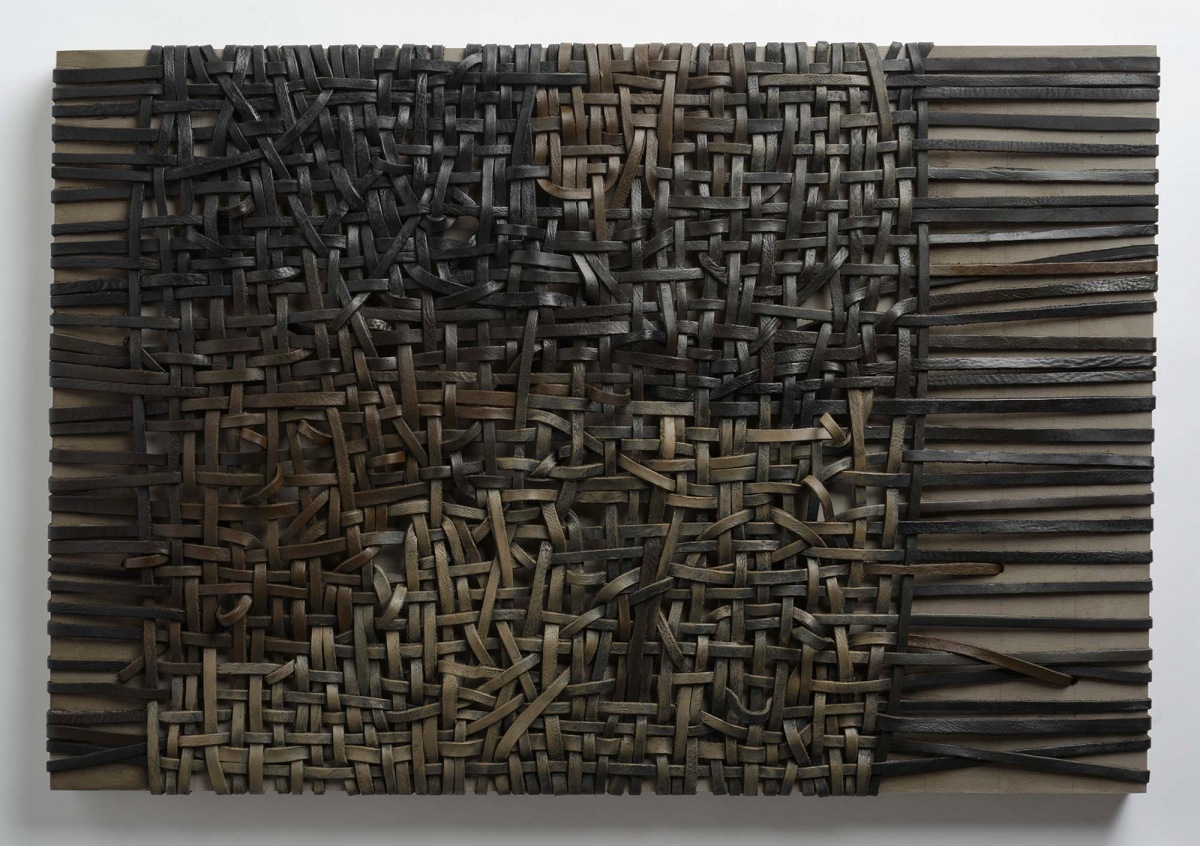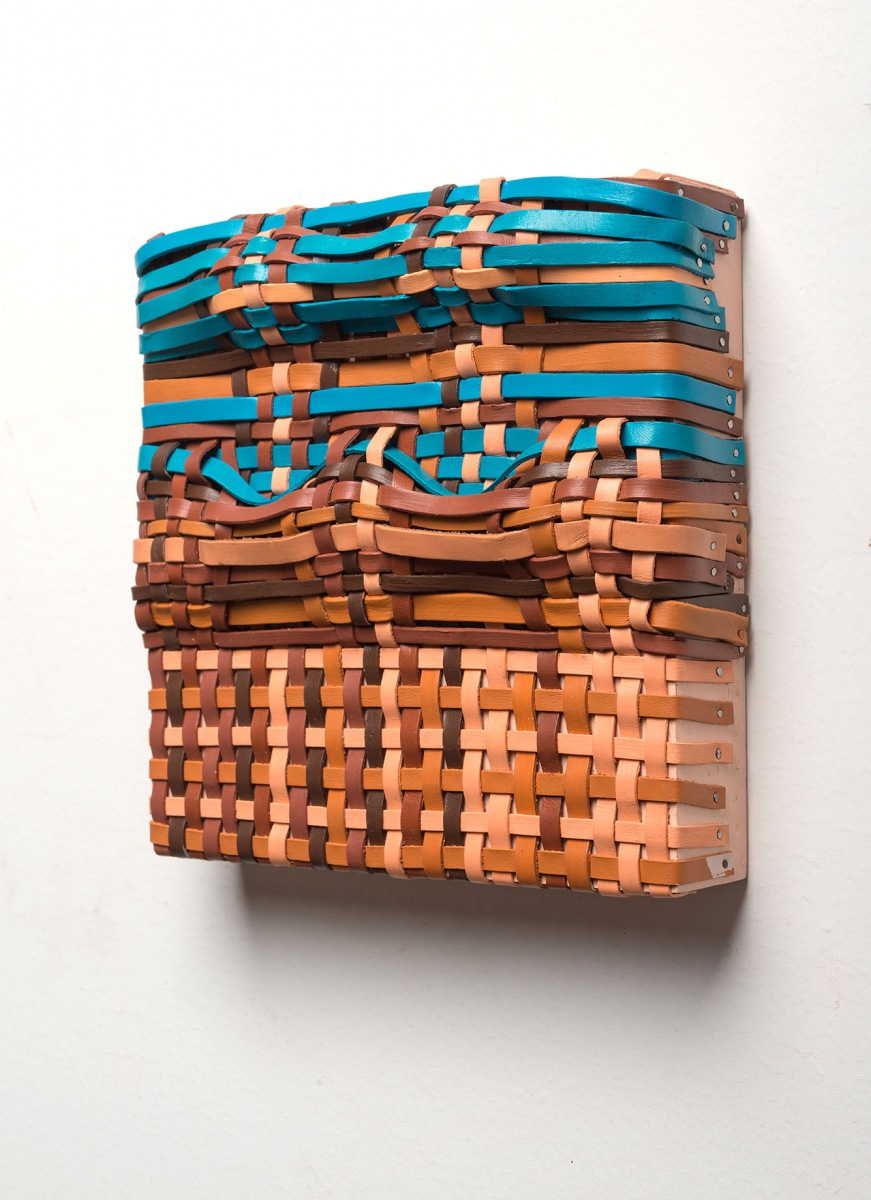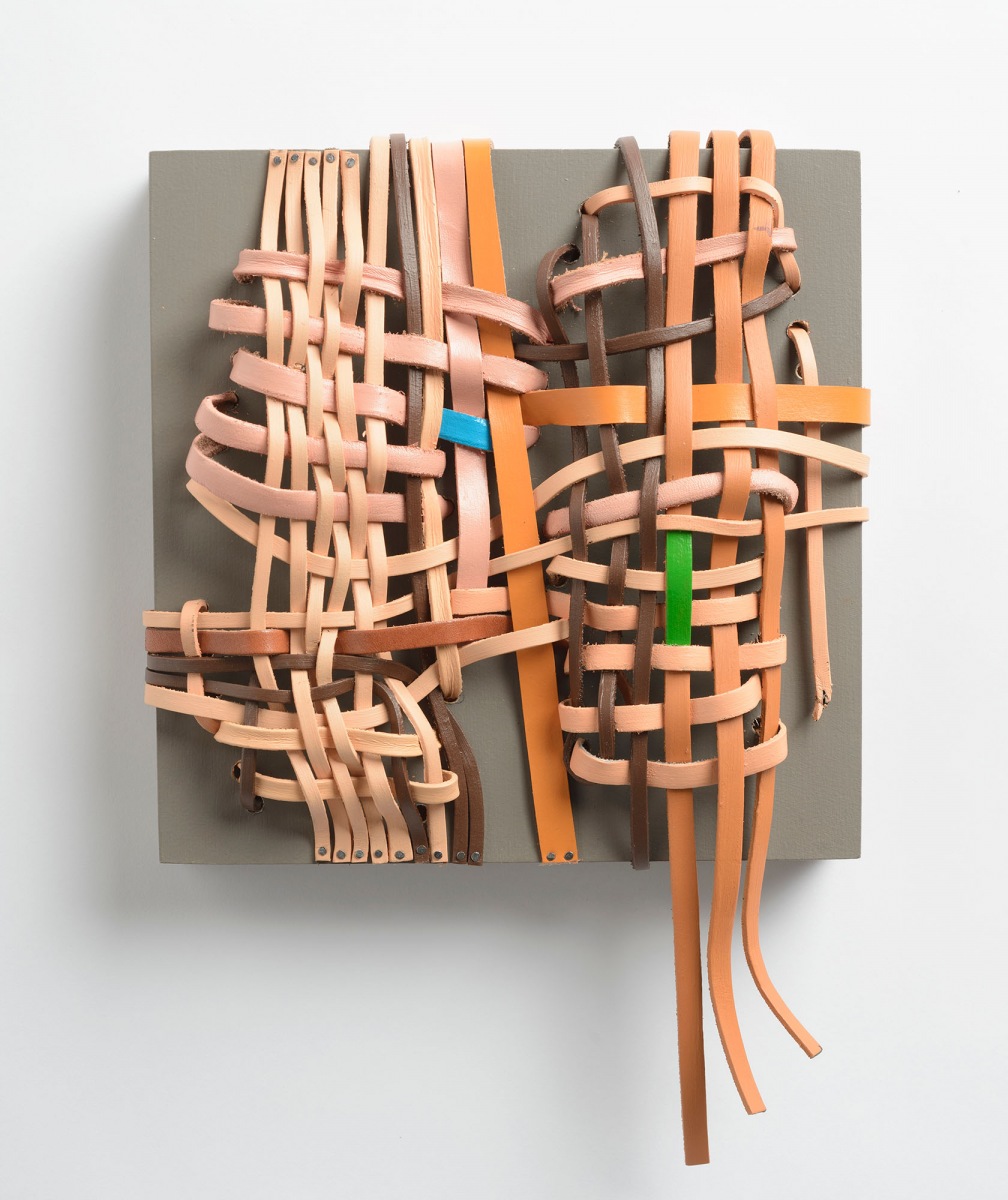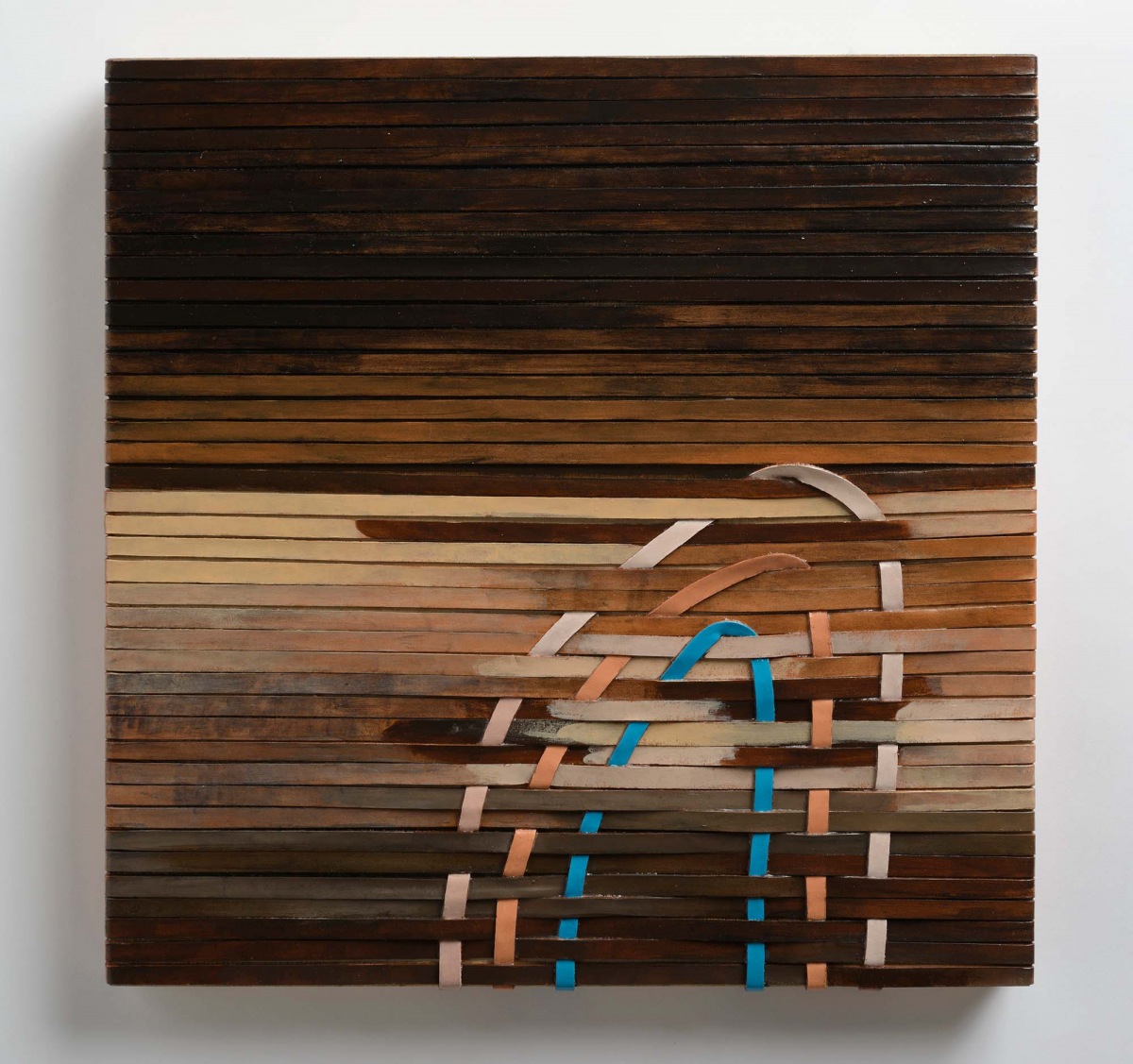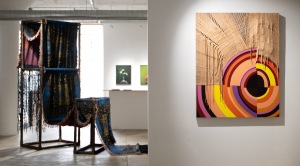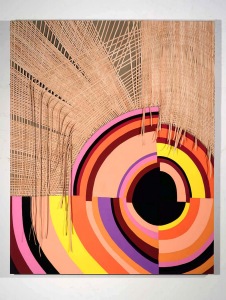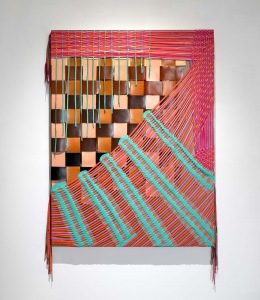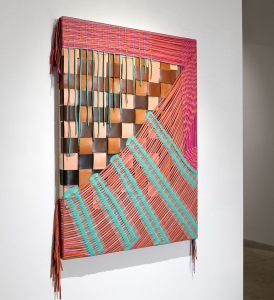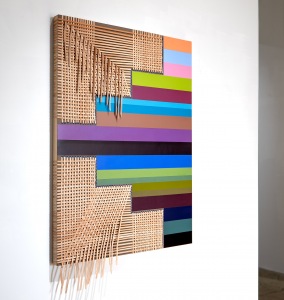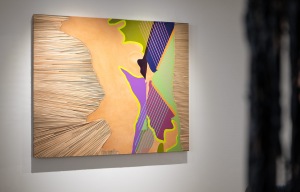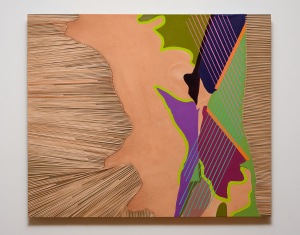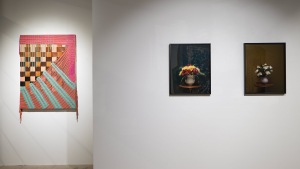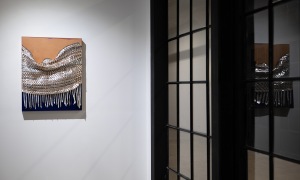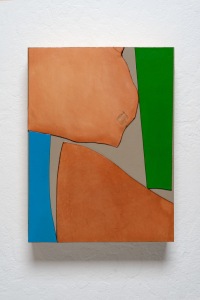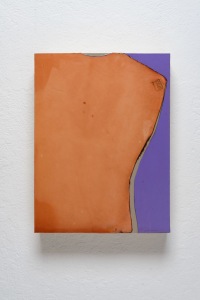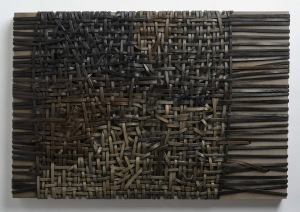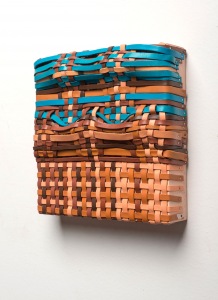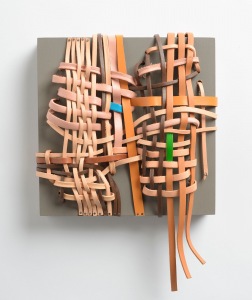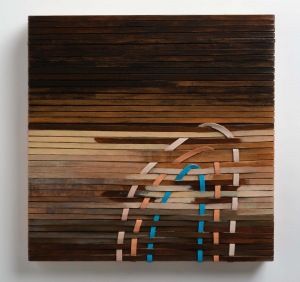Work
Videos
BIO
Pilar Agüero-Esparza is recognized for her installations, paintings, and objects reflecting the palette and politics of skin tone, specifically Brown and Black skin. The gallery recently exhibited her paintings, which are a hybrid of formal, hard-edged geometric abstraction, accentuated by her coded color palette, intersecting with her family’s tradition of huarache-making (woven leather Mexican sandals). The paintings assume the direct, flat linear approach of geometric abstraction, but with a palette describing hierarchies of color, mitigated by gridded intersecting leather strips. She extolls the craft and indigeneity of her family’s Mexican history, electrifying disparate and formidable concepts. In lesser hands, the collision of material, practice, heritage, and aesthetics might implode, but instead the elegant grace of the woven and the symmetry of the hard-edged present a striking attunement—a singular approach to how Agüero-Esparza navigates the politics of color.
Pilar Agüero-Esparza received a BA in Art from the University of California, Santa Cruz, and an MFA in Spatial Art from San Jose State University. In 2025, she will receive the prestigious Eureka Fellowship Award from the Fleishhacker Foundation in San Francisco. Agüero-Esparza has exhibited her work in institutions including the San Jose Museum of Art, Triton Museum, Yerba Buena Center for the Arts, the Santa Cruz Museum of Art & History, the De Young Museum, and the Montalvo Arts Center. In 2017, her work was featured in the exhibition “The U.S.-Mexico Border: Place, Imagination, and Possibility” at the Craft Contemporary Museum, Los Angeles, as part of the Getty Foundation Southern California initiative Pacific Standard Time: LA/LA, an ambitious exploration of Latin American and Latino art. In 2019, the U.S.-Mexico Border exhibition traveled to Lille, France, as part of the Eldorado Lille 3000 arts festival. In 2022, as an artist-in-residence and Lucas Artist Fellow, she was commissioned to create a large-scale outdoor work for the exhibition “Claiming Space: Refiguring the Body in Landscape” at the Montalvo Arts Center.
